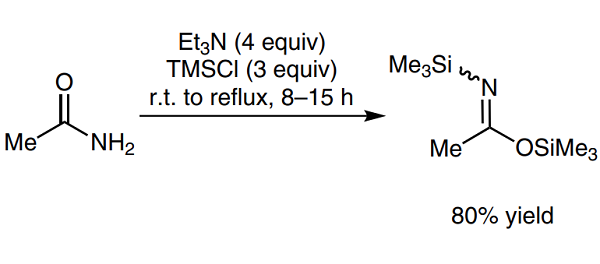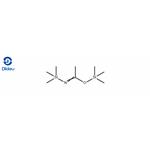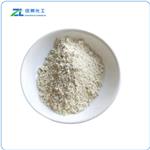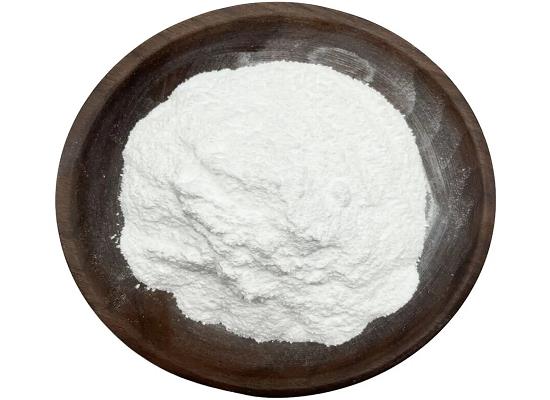N,O-Bis(trimethylsilyl)acetamide: Uses and Synthesis
Introduction
N, O-Bis(trimethylsilyl)acetamide (BSA) is a colourless liquid with a 71–73 °C/35 mmHg boiling point. It is extremely moisture-sensitive and can also be rapidly contaminated with trimethylsilylacetamide and acetamide. The reagent is commercially available and can be prepared from acetamide with excess triethylamine and chlorotrimethylsilane[1].

Uses
Since the early use of BSA in chromatographic analysis to prepare volatile trimethylsilyl derivatives, it has also proved useful in many synthetic applications. At first, BSA was used as a powerful silylating agent to protect amines, amides, carboxylic acids, alcohols, enols, and phenols. In these cases, BSA is an attractive alternative to other silylating agents, such as trimethylsilyl chloride. Indeed, the reaction conditions are generally mild and neutral, and the byproducts are sufficiently volatile to be easily removed from the reaction mixture by evaporation under reduced pressure. It has also been used as a Brønsted base precursor in Tsuji–Trost reactions. More recently, it has been used to activate various functional groups during the formation of nucleosides, peptides and heterocycles, to name but a few.
Synthesis
The method for synthesizing N, O-bis(trimethylsilyl) acetamide comprises the following steps: charging trimethylchlorosilane, charging materials into a synthetic kettle, adjusting a dropwise addition speed and temperature of the trimethylchlorosilane, and carrying out the reaction. The step for charging the materials into the synthetic kettle is to charge acetamide, triethylamine, catalyst dimethylaniline and catalyst imidazole into the synthetic kettle; the weight ratio of the acetamide and the triethylamine is 1 to (3.60 to 3.94); the dosage of the catalyst dimethylaniline is 0.1 to 0.5 percent of the weight of the acetamide; the dosage of the catalyst imidazol is 0.08 to 0.6 percent of the weight of the acetamide; in the step for charging the trimethylchlorosilane, the weight ratio of the addition amount of the trimethylchlorosilane and the acetamide is (3.77 to 4.03) to 1. The purity of a finished product prepared in the method is 99.51 to 99.62 %, and the once-through yield is 91.33 to 93.66 %[2].
[1] Claraz, Aurélie. “N,O-Bis(trimethylsilyl)acetamide.” Synlett 47 1 (2013): 657–658.
[2] CN105131026A - Method for synthesizing N, O-bis(trimethylsilyl) acetamide by virtue of two-component catalyst - Google Patents
References:
[1] HEANEY* H, CUI J. N,O‐Bis(trimethylsilyl)acetamide[C]. 2007. DOI:10.1002/047084289X.RB208.PUB2.You may like
Related articles And Qustion
Lastest Price from N,O-Bis(trimethylsilyl)acetamide manufacturers

US $0.00/kg2025-11-21
- CAS:
- 10416-59-8
- Min. Order:
- 1kg
- Purity:
- 99%
- Supply Ability:
- 10000KGS

US $50.00/kg2025-04-21
- CAS:
- 10416-59-8
- Min. Order:
- 1kg
- Purity:
- 99
- Supply Ability:
- 5000



